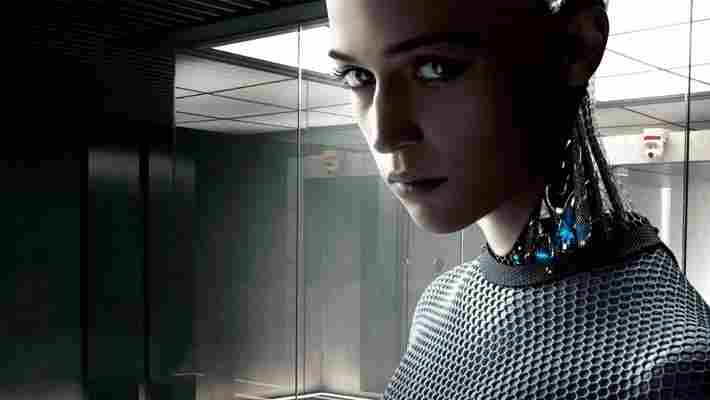Fiction helps us imagine the future of AI and the impact that it will have on our lives. But it also perpetuates stereotypes for generations to come.

From Greek mythology to contemporary sci-fi, robots are constantly anthropomorphized. The female androids are typically portrayed as beautiful, subservient, and sexually passive — or deceitful killers on the rampage. Warrior machines, meanwhile, are normally gendered male, whether they’re protecting humans like Robocop, or trying to wipe them out like the Terminator.
These stereotypes endure long after the story ends. They help foster Silicon Valley‘s tech-bro culture and the products that it creates.
Take the tendency to give voice assistants female voices and names. We’ve been conditioned to prefer synthesized female voices as they sound “warmer.” Once that prejudice is embedded in the tech, it’s sustained by our interactions with it.
As AI researcher Kanta Dihal noted at the CogX conference this week:
It’s not only stereotypes of gender that fiction reinforces. The real experiences of people of color have also been sidelined — or sublimated.
Shifting sci-fi narratives
In Dihal’s research on depictions of intelligent machines , she’s uncovered misleading allegories of slavery in stories of AI rebelling against humans :
Excluding ethnic minority, trans, and female voices from these stories help sustain biases in tech. But we can still challenge these narratives, by diverting attention from tech bro fantasies towards marginalized voices. From Nnedi Okorafo’s vision of childbirth in a future Nigeria to Cassandra Rose Clark’s tale of a girl’s love affair with an android , there are already plenty of alternatives to try.
But the first step towards promoting diverse perspectives in fiction is acknowledging the homogeneity of the Western canon. As Dihal’s colleague Kate Devlin put it:
“If you examine the narratives, then you have a chance of disrupting the narratives.”
